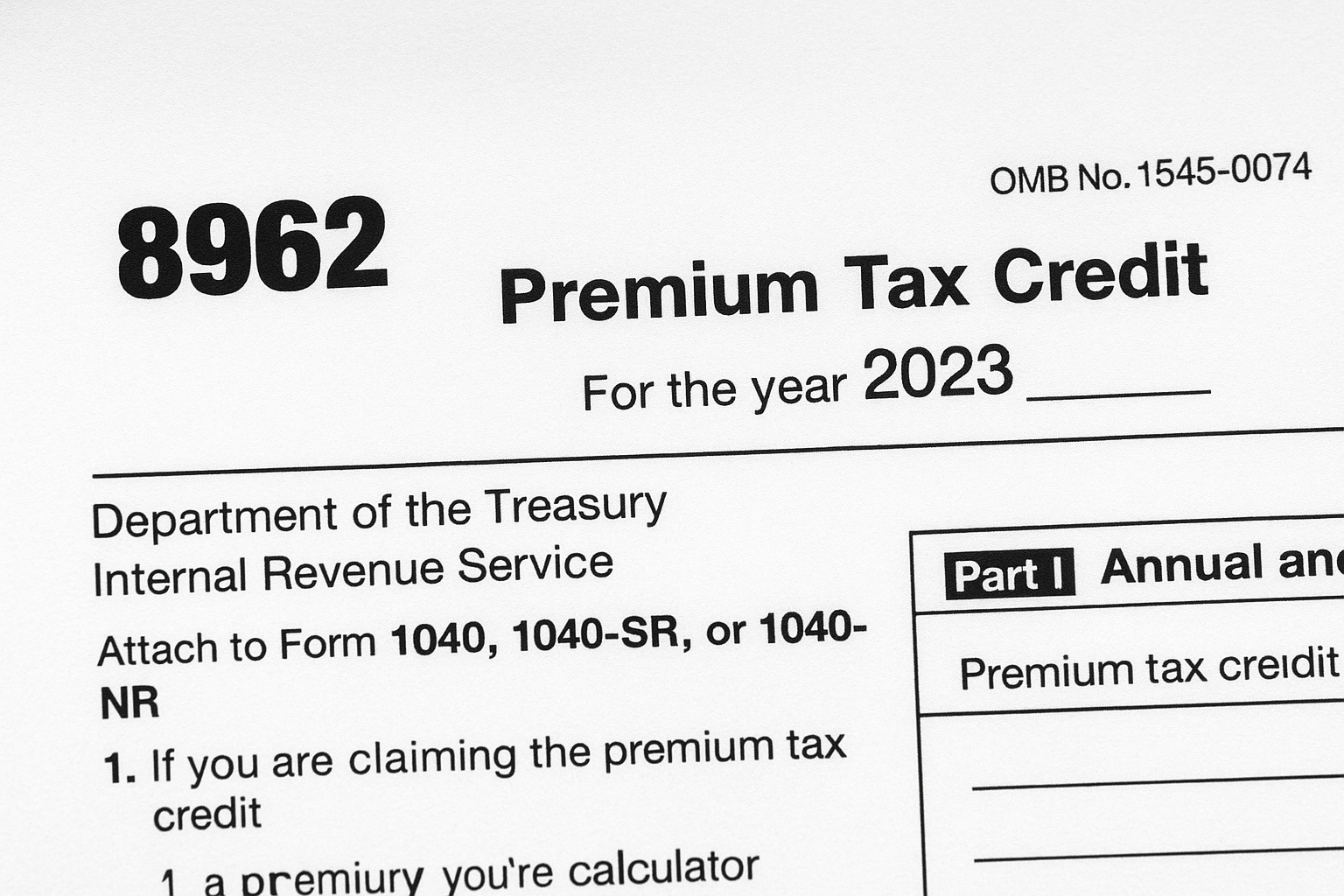Form 8962 (Premium Tax Credit): Complete Filing Guide for Taxpayers
If you bought health insurance through the Marketplace, chances are the IRS expects you to file Form 8962 with your tax return. This form can feel confusing — especially when it asks you to reconcile what you already received in health insurance subsidies against what you were actually eligible for.
At Elmira Tax, our CPAs walk clients through this form every year, helping them avoid costly IRS surprises and ensuring they maximize their Premium Tax Credit (PTC).
What Is Form 8962 & Who Needs It?
Form 8962 is the IRS form that reconciles your health insurance subsidies with your final household income. If you or a family member enrolled in Marketplace coverage and received advance payments, you will almost always need to file this form
Understanding the Premium Tax Credit (PTC)
The Premium Tax Credit is a federal subsidy designed to make health insurance affordable for qualifying households. It’s based on your Modified Adjusted Gross Income (MAGI) and family size compared to the federal poverty level (FPL).
Think of the PTC like a sliding scale: the lower your income, the larger the credit. However, it must be “trued up” at year-end to reflect your actual income, not just the estimate you gave when you applied for coverage.
Advance Premium Tax Credit (APTC) vs. Final Reconciliation
Most taxpayers receive the Advance Premium Tax Credit (APTC) directly throughout the year, lowering their monthly Marketplace premiums. At tax time, Form 8962 reconciles the APTC with your final credit amount.
If your income was lower than expected, you may get an additional credit.
If your income was higher, you may have to repay some or all of the excess subsidy.
Who Must File Form 8962?
You must file Form 8962 if:
You received Form 1095-A from the Marketplace.
Any family member’s insurance premiums were reduced with an advance credit.
You want to claim the Premium Tax Credit for coverage you purchased.
Not filing when required can lead to delayed refunds, rejected returns, or IRS notices.
When & Why Form 8962 Matters
Filing Form 8962 ensures your health insurance subsidies are reconciled fairly. Missing it can mean repayment surprises, refund delays, or even being barred from future credits.
Consequences of Not Filing When Required
If you don’t file Form 8962 when required, the IRS may:
Delay or hold your tax refund.
Deny your Premium Tax Credit for the next year.
Send balance-due notices if excess subsidies aren’t repaid.
Matching Form 1095-A with Your Credit Claim
Your Marketplace will send you Form 1095-A, which lists premiums paid, subsidy amounts, and coverage months. The IRS expects that data to match what you claim on Form 8962. A mismatch can trigger audits, letters, or rejected filings.
2025 Rules: Penalties, Caps & Up-to-Date Criteria
For 2025, repayment caps still limit how much certain taxpayers must return if their income exceeded expectations — unless income went above 400% of the federal poverty level, in which case repayment may be unlimited. Penalty structures remain in place for non-filers. Always review the current IRS thresholds or consult a tax CPA to confirm your eligibility.
Step-by-Step: How to Fill Out Form 8962
Filling out Form 8962 requires patience, precision, and your Form 1095-A. Each section of the form connects back to your household size, MAGI, and Marketplace coverage.
Part I – Annual & Monthly Contribution Amount
Here, you’ll enter your household income and family size to determine what percentage of income you’re expected to contribute toward health premiums. The IRS provides a table that sets contribution percentages.
Part II – Calculating Premium Tax Credit & Reconciliation
This is the core of the form. You’ll compare your annual PTC eligibility with the advance payments received (APTC). The difference determines whether you owe money back or get an additional refund.
Parts III–V – Excess Payments, Policy Allocation & Marriage-Specific Rules
Part III: Figures out if you owe repayment.
Part IV: Splits policy coverage between households (e.g., divorced parents).
Part V: Addresses taxpayers who married during the year and had separate Marketplace coverage.
Special Scenarios & Common Mistakes to Avoid
Even careful taxpayers can make errors on Form 8962. Certain life events make reconciliation more complex.
Mid-Year Income or Household Changes
Raises, job loss, marriage, or having a child mid-year affect your subsidy eligibility. Forgetting to update the Marketplace often leads to repayment at tax time.
Exceeding Income Expectations — Repayment Caps vs. No Caps
Below 400% FPL → capped repayment.
Above 400% FPL → full repayment required.
A tax professional can model these outcomes before you file.
Filing Separately Due to Domestic Abuse or Separate Households
Normally, married taxpayers must file jointly to claim the credit. However, exceptions exist for domestic abuse survivors or spouses living apart, allowing them to still qualify.
Filing Tips & Tools to Simplify the Process
You don’t have to tackle Form 8962 alone — IRS tools and professional tax software can help.
Using Tax Software & IRS e-file for Form 8962
Modern tax software includes worksheets for Form 8962. Using e-file ensures faster refunds and fewer IRS processing errors.
Where to Find Form 1095-A & IRS Help Resources
Form 1095-A is issued by your Marketplace, usually in January. If missing, you can download it from HealthCare.gov or your state exchange.
When to Use IRS Diagnostics or Seek a Tax Pro
If your 1095-A numbers don’t match IRS records, the return may be flagged. This is when consulting a licensed tax CPA — like Elmira Tax — can prevent issues before filing.
Frequently Asked Questions (FAQ)
These are the most common Form 8962 questions we hear from taxpayers.
Can I claim the PTC without receiving APTC?
Yes. Even if you didn’t receive advance subsidies, you may still qualify for a retroactive Premium Tax Credit when you file your return.
What if I didn’t receive Form 1095-A on time?
You can’t complete Form 8962 without it. Contact your Marketplace directly or log into your online account to download the form.
How do changes to MAGI mid-year impact my Form 8962?
If your income increased, you may need to repay some subsidies. If your income dropped, you may qualify for a bigger credit. Filing ensures everything balances correctly.
Final Note from Elmira Tax
Filing Form 8962 correctly is essential to avoid IRS surprises and to maximize the Premium Tax Credit you deserve. At Elmira Tax, our CPAs guide taxpayers through every step — from checking Form 1095-A to reconciling complex family situations.
Disclaimer: This article is for educational purposes only and not tax advice. Always consult a qualified professional before filing.
👉 Schedule a consultation with Elmira Tax today to get clarity on Form 8962 and your Premium Tax Credit eligibility.

